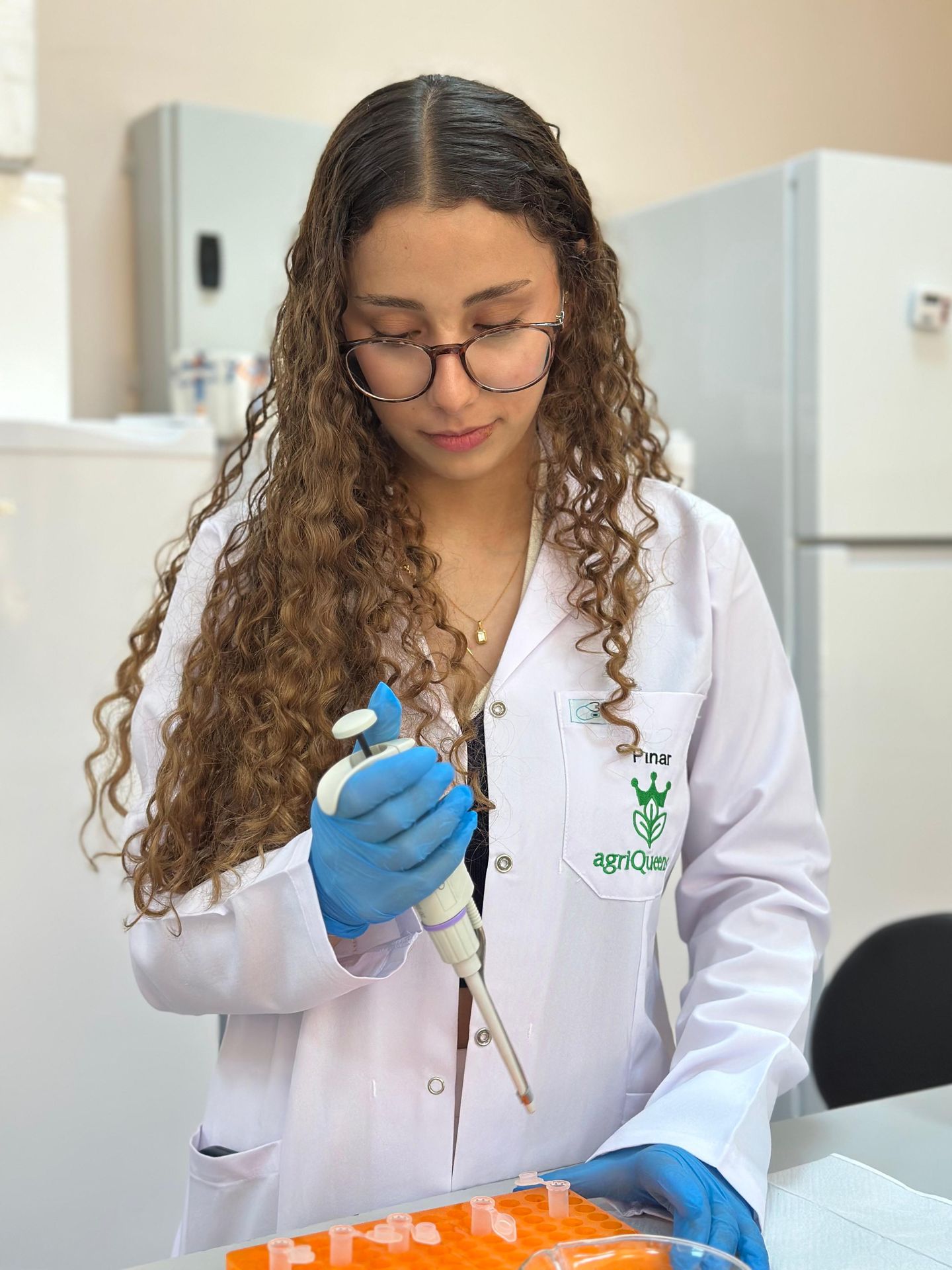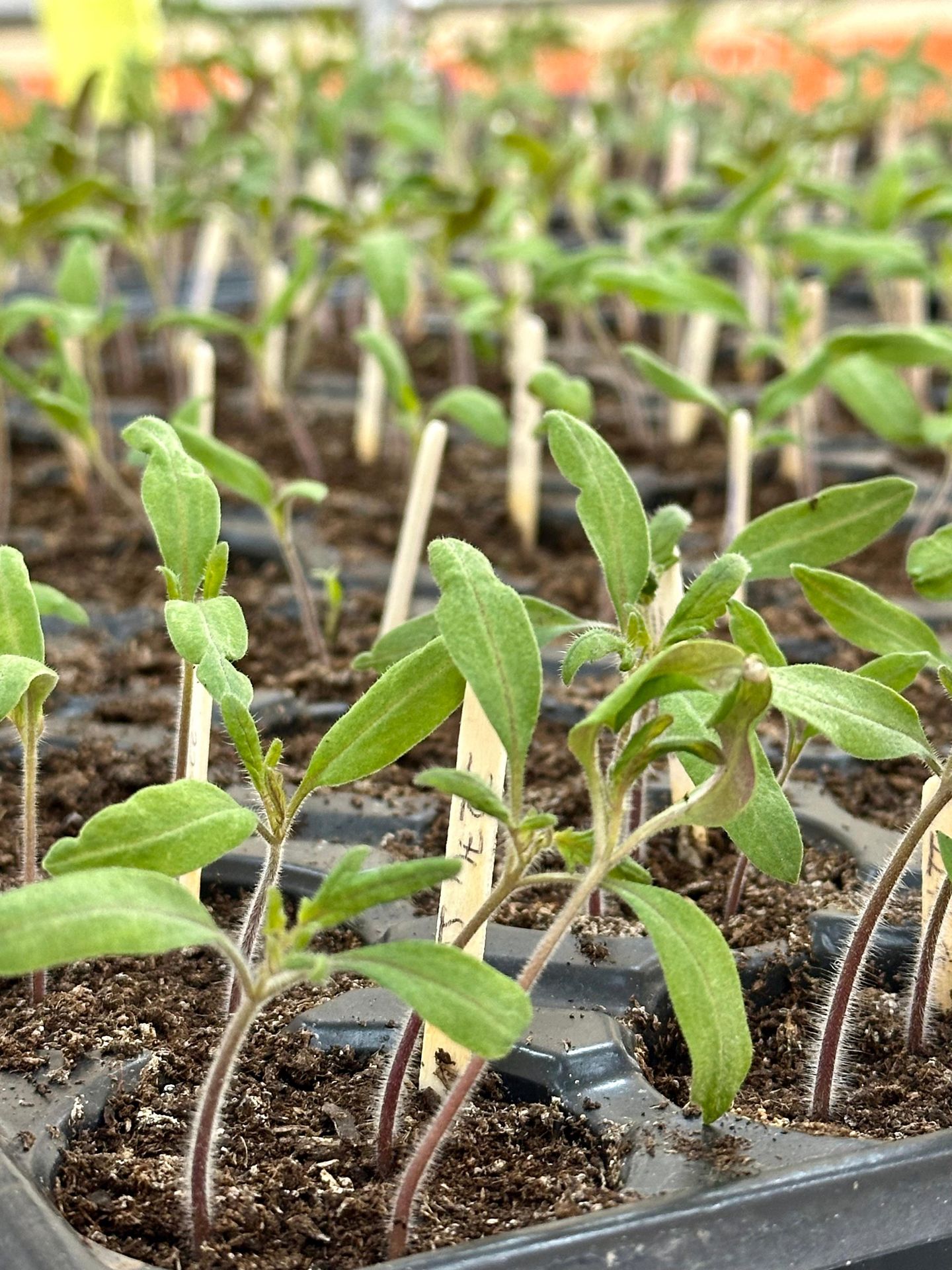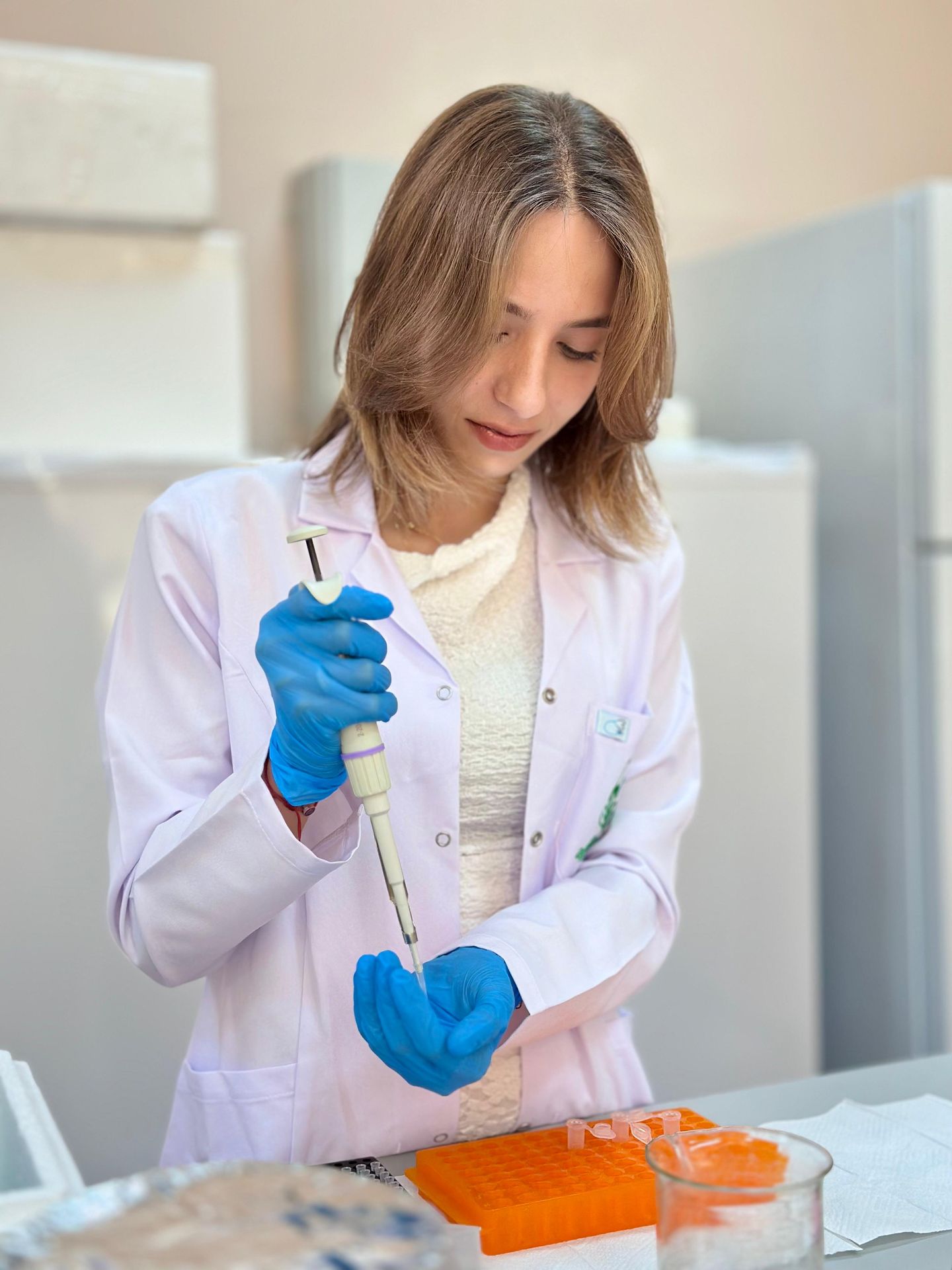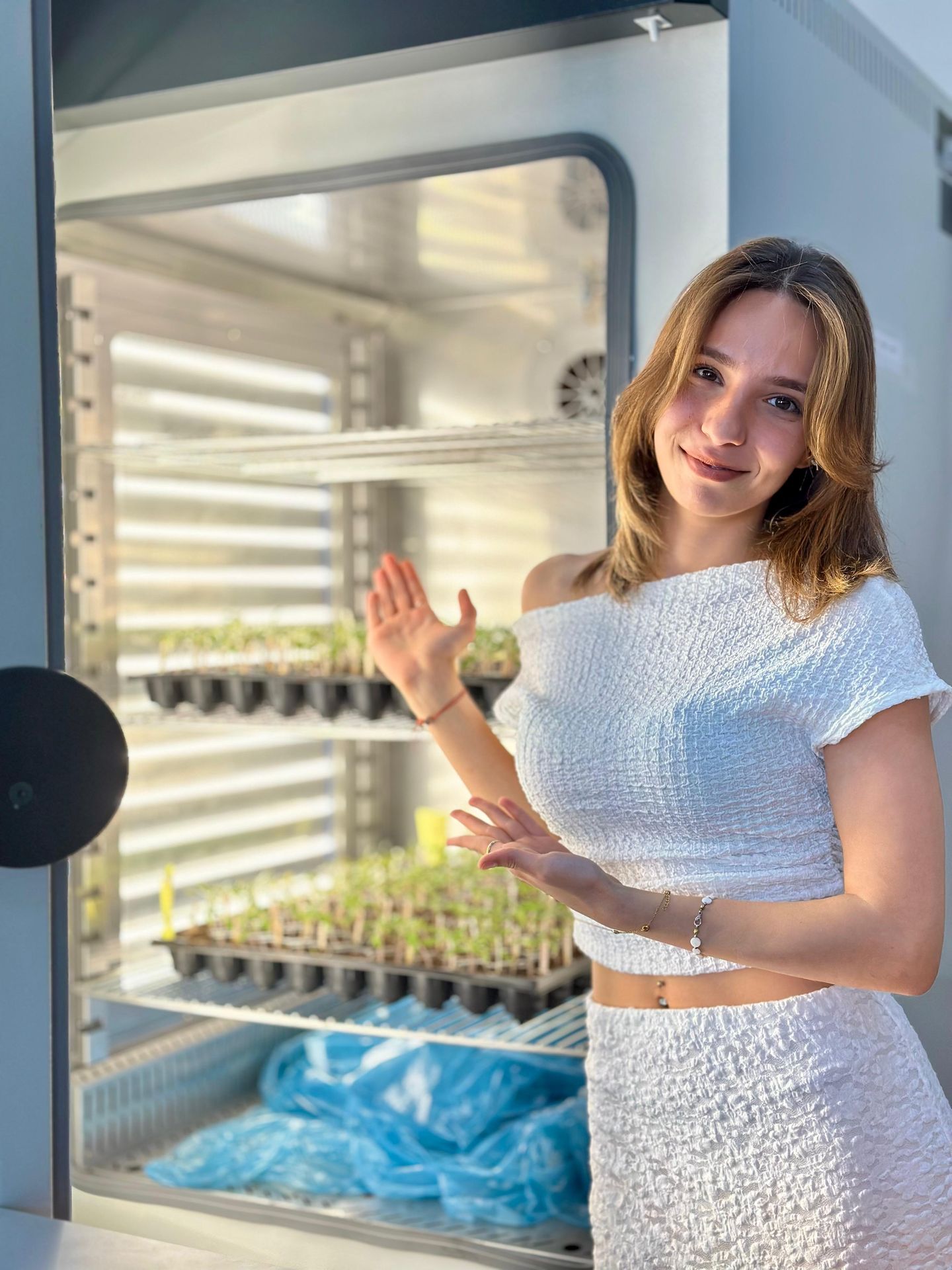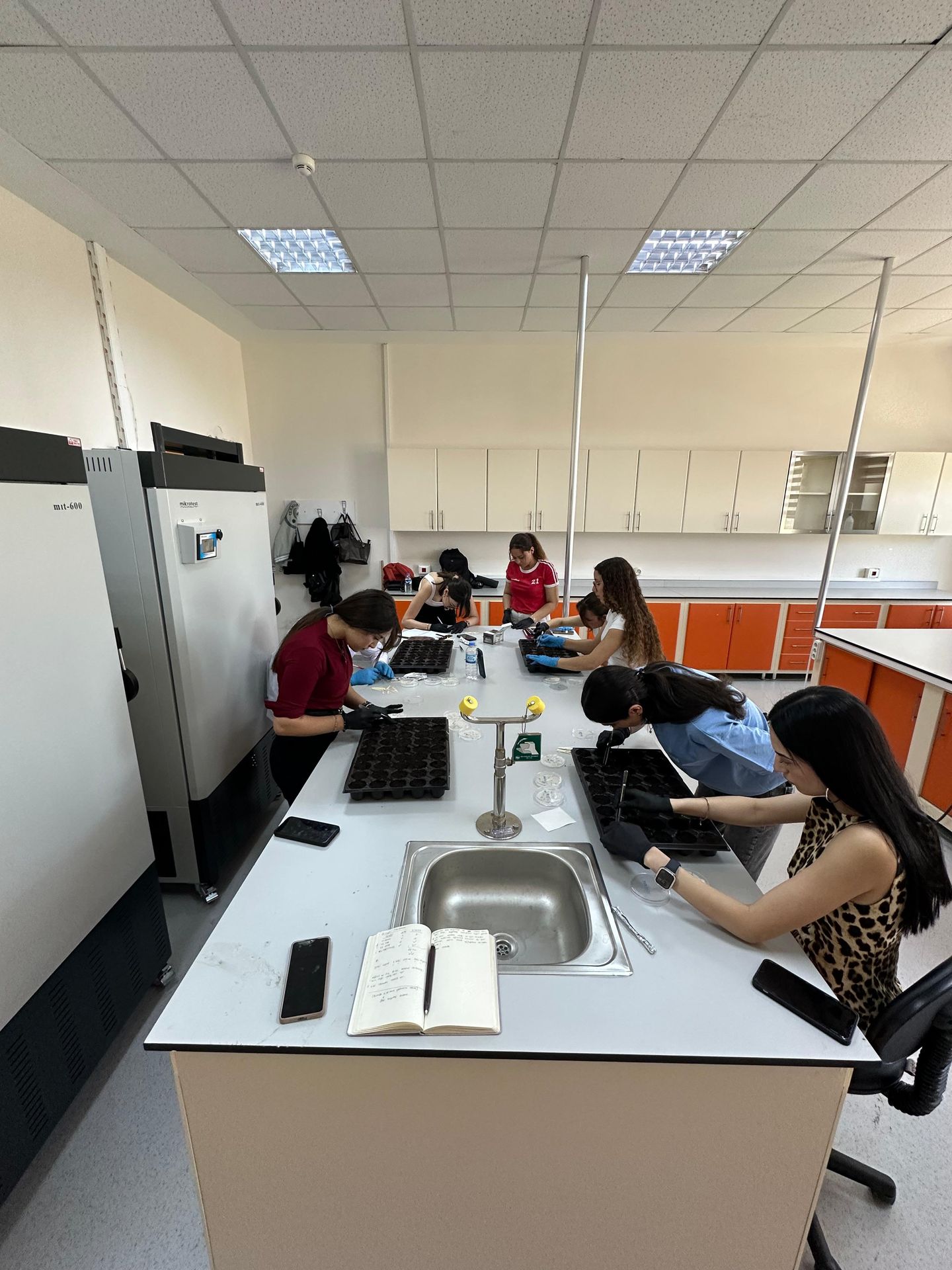An innovative research carried out within the Department of Agricultural Biotechnology of the Faculty of Agriculture of our university is about the search for a natural and sustainable solution to the effects of climate change on agriculture. Within the scope of the project, the effects of carricin, a natural compound that can increase resistance to abiotic stress conditions such as temperature and drought in tomato plants, are being examined.
The study is carried out within the scope of the specialised project titled ‘Natural Production of a Plant Growth Regulator that Promotes Seed Germination in High Value-Added Plants and Increases Resistance to Abiotic Stress’ under the supervision of Assoc. Prof. Dr. Kaan HÜRKAN and project number YİP0723İ04. The research is still in the experimental stage and the findings to be obtained are aimed to contribute to the development of environmentally friendly practices in agriculture.
In this context, the effects of the naturally occurring carricin compound in the soil after fire on the germination rate and speed of tomato seeds and the molecular and physiological responses of seedlings to temperature and drought stress are being evaluated. As the project progresses, gene expression levels of antioxidant defence genes (CAT, SOD) and stress-related transcription factors (WRKY31, ERF84, LeNHX1) will also be analysed.
The undergraduate students involved in the research are actively contributing to the implementation process of the project by forming a voluntary working group calling themselves ‘agriQueens’. Zeynep Özmen, Pınar Büyük, İnci Deniz, Hayriye Kalle, Havin Doğan, Dilan Yıldız, Nuriye Altıntaş, Perihansu Çelik and Zelal Erdoğan are involved in many stages from germination analyses to stress applications, molecular sampling to laboratory data management.
This original study aims not only to produce scientific knowledge, but also to contribute to the research culture of undergraduate students and to the development of biotechnological solutions to combat climate change.
